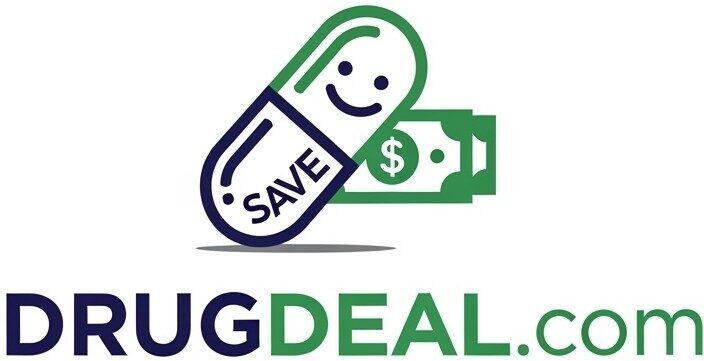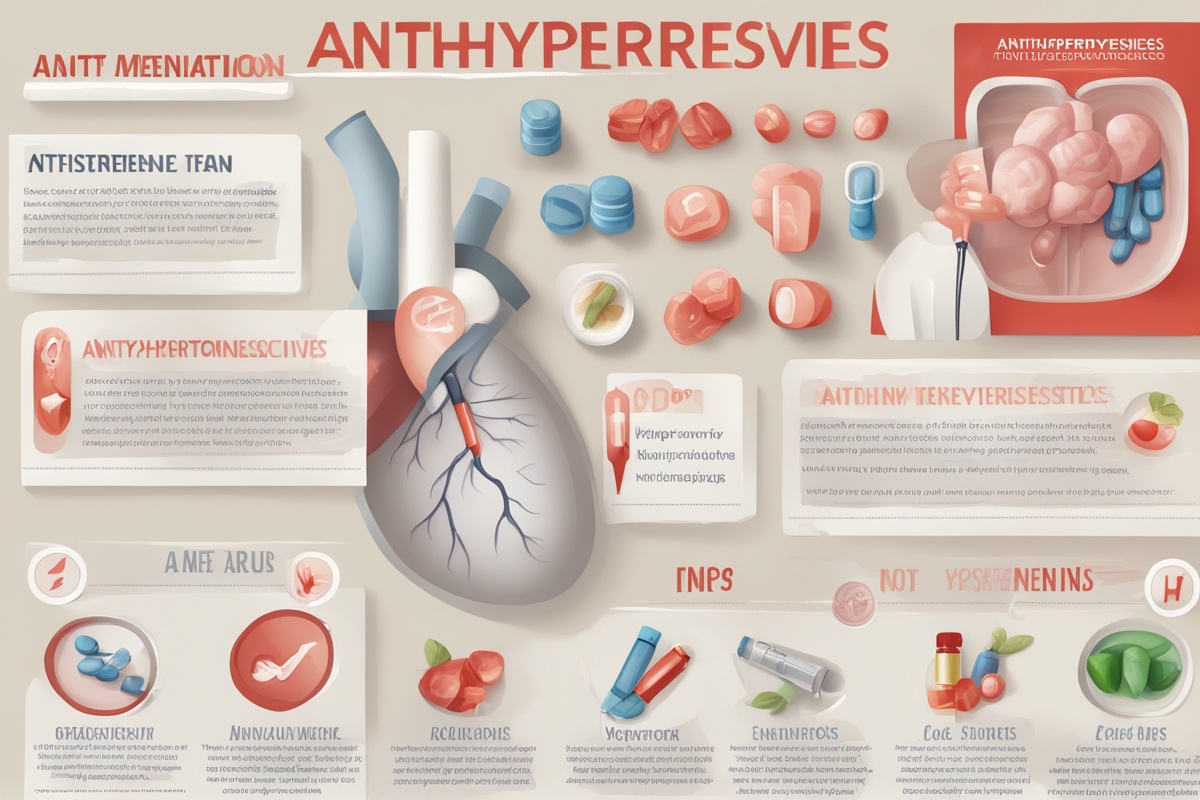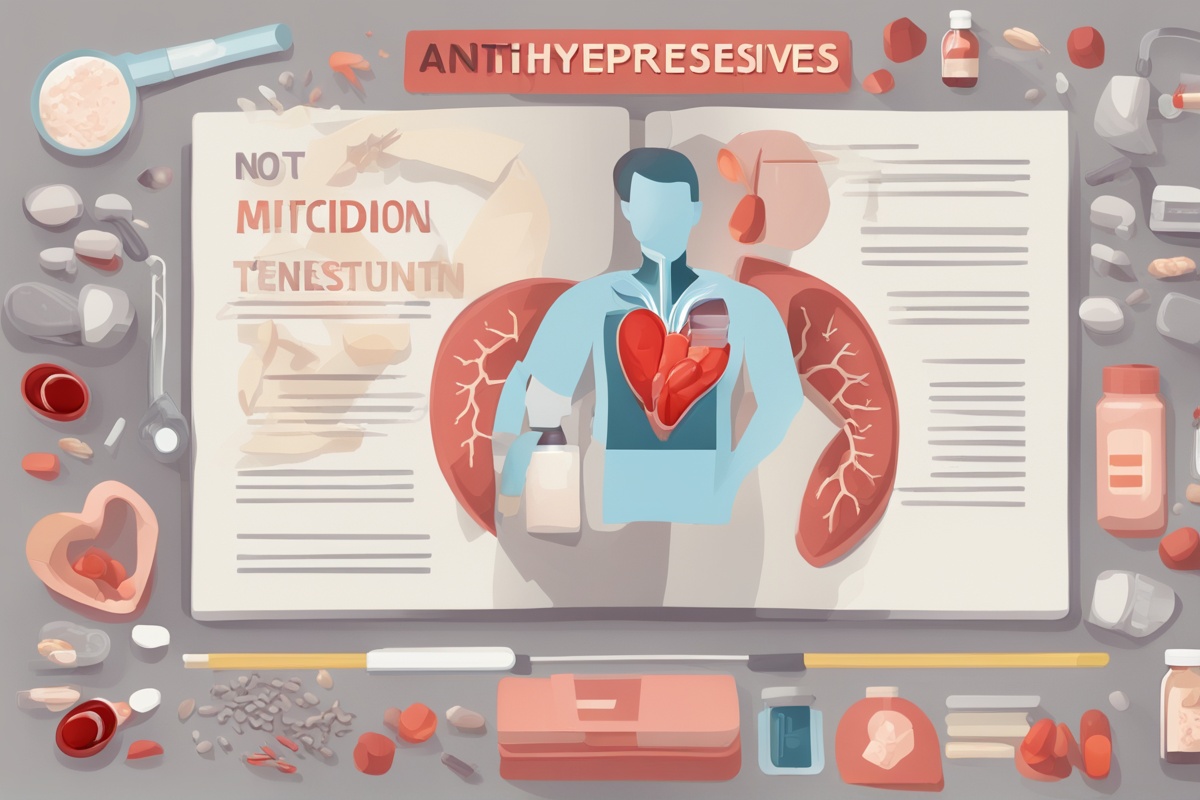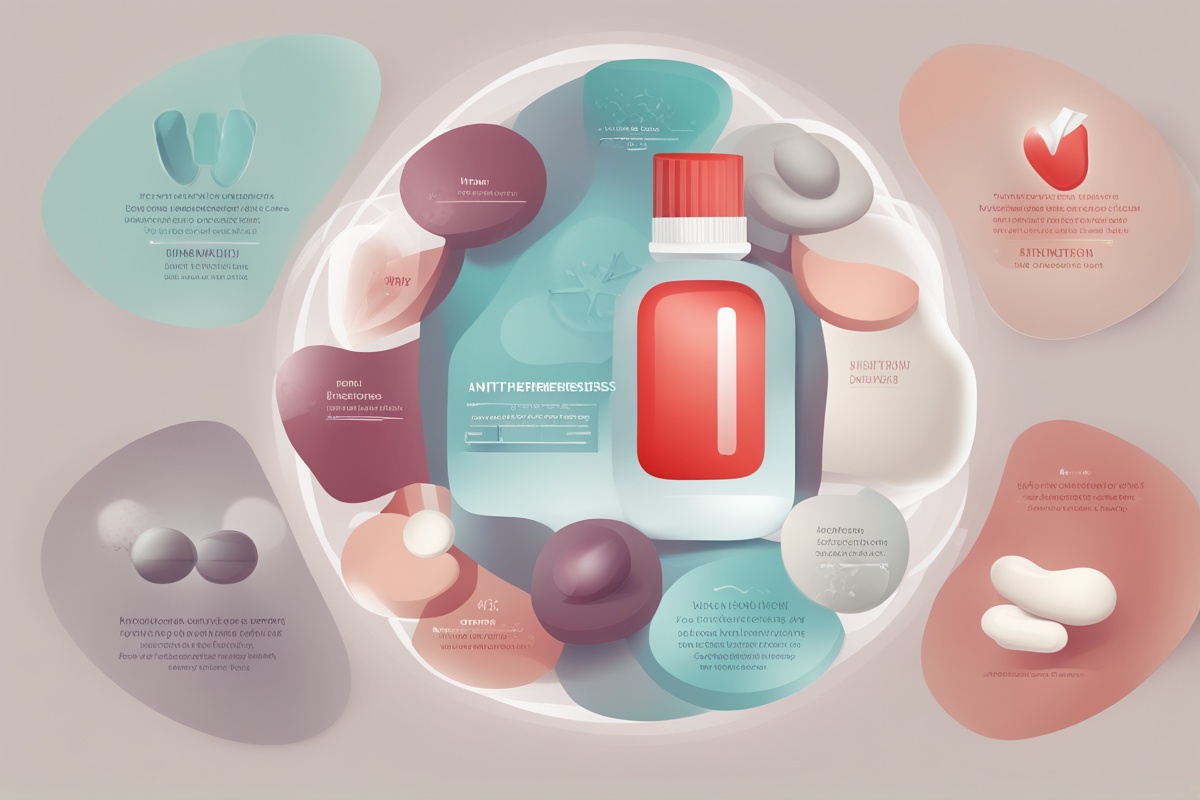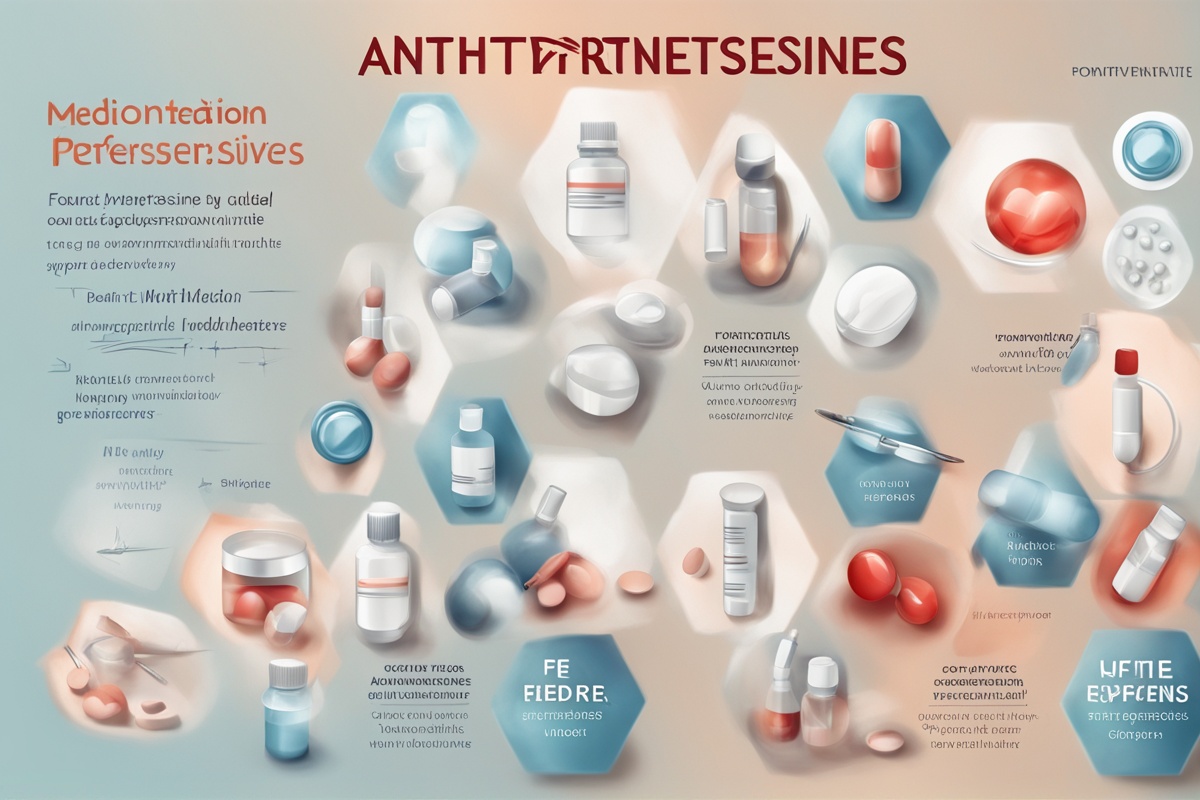Navigating the world of antihypertensive drugs can feel like walking through a maze blindfolded. With countless medications, varying side effects, and a one-size-doesn’t-fit-all approach, how do you even begin to understand what’s right for you or a loved one? If you’ve ever found yourself scratching your head over a prescription label or wondering why your doctor switched your meds, you’re not alone. This comprehensive guide to antihypertensive drug usage is here to shed light on the topic, offering practical insights, expert-backed advice, and a clear path to understanding how these life-changing medications work. Whether you’re newly diagnosed with hypertension or managing it for years, let’s dive into the nitty-gritty of blood pressure management with clarity and care.
What Are Antihypertensive Drugs, and Why Do They Matter?
Antihypertensive drugs are medications designed to lower high blood pressure, also known as hypertension—a condition that affects millions worldwide and can sneak up on you without a single symptom. Often called the “silent killer,” hypertension can lead to heart disease, stroke, or kidney failure if left unchecked. I remember a neighbor who ignored his doctor’s warnings for years, only to face a scary wake-up call with a mild heart attack. It’s a stark reminder of why managing blood pressure isn’t just a suggestion; it’s a necessity.
These drugs work in various ways—some relax blood vessels, others reduce fluid in the body, and a few slow down the heart rate. But here’s the kicker: not every drug works the same for everyone. Factors like age, lifestyle, and even genetics play a role. That’s why understanding the landscape of antihypertensive drug usage is so critical. It’s not just about popping a pill; it’s about finding the right fit to keep your heart healthy and your risks low.
Types of Antihypertensive Drugs: Breaking Down the Options
Imagine you’re at a buffet, but instead of food, you’ve got a spread of blood pressure medications. Each class of antihypertensive drug has its own flavor—unique benefits and potential downsides. Let’s break down the main types so you can get a sense of what might be on the menu for you or someone you care about.
First up, we’ve got ACE inhibitors like lisinopril, which relax blood vessels by blocking a hormone that tightens them. They’re often a go-to for many patients, especially those with diabetes, but watch out for that pesky dry cough some folks develop. Then there are beta-blockers, such as metoprolol, which slow the heart rate. They’re great for people with heart conditions but might leave you feeling a bit sluggish. Diuretics, often called “water pills,” like hydrochlorothiazide, flush out excess fluid and salt—super effective, though you might find yourself running to the bathroom more often. Calcium channel blockers (think amlodipine) prevent calcium from tightening blood vessels, while ARBs (like losartan) work similarly to ACE inhibitors but with fewer cough-related side effects.
Each type has its place, and doctors often mix and match based on individual needs. I’ve seen a friend struggle with fatigue on beta-blockers, only to thrive once switched to an ARB. It’s a trial-and-error process sometimes, but knowing the basics can help you ask the right questions at your next appointment.
How to Use Antihypertensive Drugs Safely and Effectively
Starting a new medication can feel like stepping into uncharted territory. Will it work? Will there be side effects? Here’s where a little know-how goes a long way. Safe and effective antihypertensive drug usage isn’t just about following the prescription—it’s about integrating it into your life with intention.
First, always take your meds as prescribed. Sounds obvious, right? But life gets busy, and it’s easy to skip a dose. Set a reminder on your phone or pair it with a daily habit like brushing your teeth. Second, don’t play doctor—never adjust your dosage without consulting your healthcare provider. I once knew someone who cut their pills in half thinking they’d “ease into it,” only to end up with uncontrolled blood pressure and a stern lecture from their physician. Third, keep tabs on side effects. Dizziness, fatigue, or swelling could signal something’s off, so report these to your doctor pronto.
Lastly, pair your meds with lifestyle tweaks. A pill isn’t a magic wand—eating less salt, moving more, and managing stress can amplify the drug’s effects. Think of it as teamwork between you and your prescription. When used thoughtfully, these drugs don’t just lower numbers on a monitor; they give you back control over your health.
Common Challenges and Side Effects: What to Watch For
Let’s be real—medications aren’t always a walk in the park. While antihypertensive drugs can be lifesavers, they often come with a side of challenges that can catch you off guard. Ever felt lightheaded after standing up too fast? That could be orthostatic hypotension, a common issue with some blood pressure meds, especially if the dosage is too high.
Side effects vary by drug class. ACE inhibitors might trigger that nagging cough I mentioned earlier, while diuretics can mess with your potassium levels, leaving you feeling weak or crampy. Beta-blockers sometimes dampen energy levels—imagine trying to chase after your kids or tackle a workout when you’re dragging. And don’t get me started on the rare but serious stuff, like kidney issues or allergic reactions. The key is to stay vigilant and communicate with your doctor. If something feels off, speak up. Your treatment plan isn’t set in stone; it can—and should—evolve with you.
Another hurdle? Adherence. A study from the American Heart Association notes that nearly half of patients stop taking their meds within a year due to cost, forgetfulness, or frustration with side effects. I get it—when you don’t “feel” hypertensive, it’s tempting to ditch the pills. But consistency is everything. Finding a support system, like a family member to nudge you or a pharmacist to answer questions, can make all the difference.
When to Seek Help: Red Flags and Next Steps
Picture this: you’ve been on your antihypertensive meds for a few weeks, but suddenly, your chest feels tight, or your vision blurs. What now? Knowing when to seek help is just as important as taking your meds correctly. Some symptoms scream “emergency”—think severe headaches, shortness of breath, or chest pain. These could signal uncontrolled hypertension or a reaction to the drug itself. Don’t wait; call your doctor or head to the ER.
Even less dramatic signs, like persistent dizziness or swelling in your legs, deserve attention. They might mean your dose needs tweaking or that the drug isn’t the right match. And if your blood pressure readings stay stubbornly high despite medication, that’s a cue to revisit your plan. Experts like those at the Mayo Clinic emphasize that hypertension management is a dynamic process—don’t settle for “good enough” when “optimal” is within reach. Your health is worth the extra conversation with your provider.
Lifestyle and Antihypertensives: A Winning Combo
Here’s a little secret that’s not so secret: antihypertensive drugs work best when you meet them halfway. Medication can lower your blood pressure, but lifestyle changes can keep it there. I’ve seen this firsthand with a family member who transformed their numbers by cutting sodium and walking daily—their dose even got reduced over time. It’s proof that small shifts add up.
Start with diet. The DASH (Dietary Approaches to Stop Hypertension) plan, backed by the National Heart, Lung, and Blood Institute, prioritizes fruits, veggies, whole grains, and lean proteins while slashing salt. Pair that with regular exercise—aim for at least 30 minutes most days, even if it’s just a brisk stroll. Stress management, like meditation or yoga, can also tame those pressure spikes. And if you smoke or drink heavily, cutting back (or quitting) is non-negotiable. Think of these habits as your meds’ best friends—they boost effectiveness and might even reduce your reliance on higher doses. Why settle for just managing hypertension when you can actively fight it?
References
- American Heart Association – Types of Blood Pressure Medications
- Mayo Clinic – High Blood Pressure Medication
- National Heart, Lung, and Blood Institute – DASH Eating Plan
- Centers for Disease Control and Prevention – Blood Pressure Medicines
- Harvard Health Publishing – Tips for Taking Blood Pressure Drugs
Disclaimer: This article is for informational purposes only and is based on general research and shared experiences. It is not intended to serve as a substitute for professional medical advice, diagnosis, or treatment. Hypertension and its management are highly individualized, and what works for one person may not be suitable for another. Always consult a qualified healthcare provider for personalized guidance tailored to your specific health needs and circumstances. If you have concerns about your blood pressure, medication side effects, or overall treatment plan, seek professional input before making any changes. Your health and safety are the top priority, and expert advice is essential for making informed decisions.
This content is for informational purposes only and not a substitute for professional advice.
